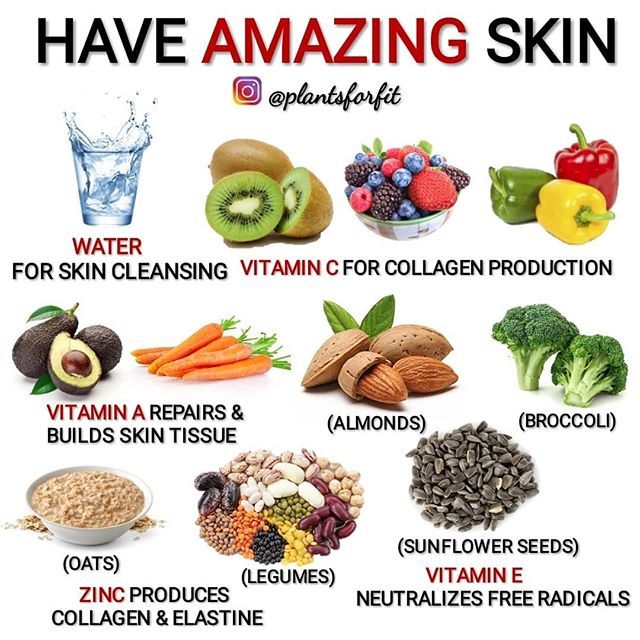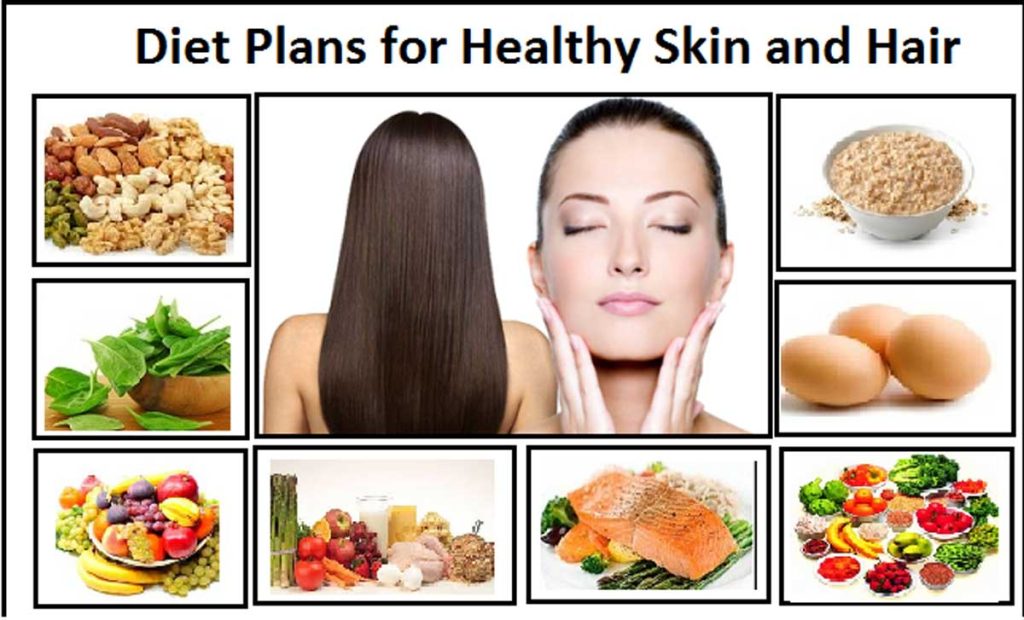A balanced and nutritious diet can definitely contribute to excellent skin care, and incorporating certain types of oils into your diet can also be beneficial for your skin health.
Omega-3 fatty acids are a type of healthy fat that can help to nourish and protect the skin. Foods that are high in omega-3s include fatty fish (such as salmon and sardines), chia seeds, flaxseeds, and walnuts.
You can also consider taking a fish oil supplement if you’re not getting enough omega-3s through your diet.Olive oil is another oil that can be great for your skin when consumed in moderation. It contains monounsaturated fats and antioxidants, which can help
According to; wellhealthorganic.com:diet-for-excellent-skin-care-oil-is-an-essential-ingredient
Furthermore, some health experts believe that if our diet lacks certain nutrients that promote healthy skin, then more serious skin conditions can arise. For instance, we may experience breakouts from acne, eczema, or psoriasis. A variety of chronic skin conditions are directly connected to our diet.
To promote healthy skin, it’s important to include food items that are rich in nutrients such as vitamins A, C, and E, as well as antioxidants, essential fatty acids, and water. Some examples of food items that promote healthy skin include:
- Berries: Berries are rich in antioxidants that protect the skin from damage caused by free radicals.
- Dark leafy greens: Dark leafy greens are rich in vitamin A, which helps to repair damaged skin.
- Fatty fish: Fatty fish such as salmon, mackerel, and sardines are rich in omega-3 fatty acids, which help to keep the skin hydrated and supple.
- Nuts: Nuts are rich in vitamin E, which helps to protect the skin from damage caused by UV radiation.
- Water: Drinking plenty of water is essential for keeping the skin hydrated and healthy.
By incorporating these food items into your diet, you can help to promote healthy skin and achieve a radiant, glowing, and younger-looking complexion.
WHAT ARE THE BEST FOODS FOR HEALTHY SKIN?
Experts agree that a healthy and balanced diet is crucial for healthy skin. While all nutrients are important, some specific foods can boost skin health more than others. One of the most crucial nutrients for good skin health is Vitamin A, and one of the most efficient sources of it is low-fat dairy products. Experts believe that the health of skin cells is dependent on the intake of vitamin A from our diet.
According to nutrition expert Liz Lipski, PhD, CCN, it is especially important to consume A-rich dairy foods if you suffer from thyroid disease or diabetes. Many people with these conditions cannot convert beta-carotene to vitamin A, which is the form found in many foods like carrots. Lipski explains that the A found in milk products represents “true A,” which means that everyone’s skin can benefit from it.
Lipski also highlights the benefits of low-fat yogurt, which is not only rich in vitamin A but also contains acidophilus, a beneficial “live” bacteria for digestive health. The probiotic bacteria in yogurt can also have a positive impact on the skin
Consuming low-fat dairy products, especially those rich in vitamin A, can be beneficial for skin health. Additionally, incorporating low-fat yogurt into your diet can also have a positive impact on the skin. However, it is important to remember that a balanced and varied diet with plenty of fruits, vegetables, whole grains, and lean protein is essential for overall health, including skin health.
“Anything can help keep digestion in check, whether it’s live enzymes or bacteria, is likely to be visible in healthy looking complexion,” Lipski says. Lipski.
When it comes to healthy skin, consuming food items that are rich in antioxidants and phytochemicals are crucial. Blueberries, blackberries, and plums are some of the fruits that are rich in antioxidants, according to a study published in the Journal of Agricultural and Food Chemistry. These fruits are found to have the highest “total antioxidant capability” compared to any other food, which makes them a great choice for promoting healthy skin.

Samantha Heller, an expert in clinical nutrition working at NYU Medical Center in New York City, explains that free radicals, which are generated due to sun exposure, can cause damage to the skin’s membrane cells and DNA. However, the antioxidants and phytochemicals found in these fruits can help protect the cells, reducing the chances of damage and premature aging of the skin.
In addition to these fruits, other food items that are rich in antioxidants include beans, artichokes, prunes, and pecans, according to the study. These foods can provide a wide range of benefits to the skin and overall health.
Furthermore, consuming food items that are rich in essential fatty acids is also essential for maintaining healthy skin. Salmon, walnuts, canola oil, and flax seeds are some examples of such food items. These essential fatty acids help to keep the skin hydrated, plump, and radiant.
it is important to consume a balanced and healthy diet that includes a variety of fruits, vegetables, and other nutrient-rich food items to promote healthy skin. Foods that are rich in antioxidants, phytochemicals, and essential fatty acids can provide numerous benefits to the skin and overall health.
Maintaining healthy and balanced meals is the most effective way to ensure that one gets the daily dose of essential nutrients for healthy skin. However, some specific food items have a higher chance than others to provide a boost of radiant health and glowing skin. According to experts, low-fat dairy products, blueberries, blackberries, plums, beans, artichokes, prunes, pecans, salmon, walnuts, canola oil, and flaxseed are the top food items for healthy skin.
Low-fat dairy products, such as milk and yogurt, are rich in vitamin A, which is crucial for the health and well-being of skin cells. Liz Lipski, a nutrition expert, and author states that individuals with thyroid disease or diabetes should consume A-rich dairy foods since they may have difficulty converting beta carotene to vitamin A, which is commonly found in many foods. Yogurt with low fat is also rich in acidophilus, which is a live bacteria beneficial to digestive health, and could impact the skin.
Blueberries, blackberries, and plums are rich in antioxidants, which help protect the skin’s membrane cells from damage caused by free radicals, such as sun exposure. The antioxidants and phytochemicals found in these fruits protect the skin cells from disintegration and damage, leading to less chance of premature aging. Other food items rich in antioxidants include beans, artichokes, prunes, pecans, and more.

Essential fatty acids, such as omega 3 and omega 6, are essential for the health of cell membranes, as they serve as a barrier that blocks harmful substances while allowing nutrients to move in and out of the cells. The more solid the cell membrane, the better the cells retain moisture, leading to plumper and more youthful-looking skin. Furthermore, essential fatty acids offer protection against the same process of inflammation that can damage the skin cells and lead to heart disease. While omega 6 is commonly found in most diets, many individuals are deficient in omega 3. Food items rich in omega 3 include walnuts, fish, and flaxseed oil.
Healthy oils also play a vital role in maintaining healthy skin, as they contain more than just essential fatty acids. A diet rich in quality oils keeps the skin lubricated and maintains its appearance and health. Cold-pressed, expeller-processed, and extra virgin oils are the best oils to maintain healthy skin, as the processing method for commercial oils often involves solvents and extremely high temperatures, leading to nutrient loss.
A healthy and balanced diet is essential for maintaining healthy skin. Food items such as low-fat dairy products, blueberries, blackberries, plums, beans, artichokes, prunes, pecans, salmon, walnuts, canola oil, and flaxseed provide essential nutrients and antioxidants that help protect the skin from damage caused by free radicals and inflammation. Furthermore, incorporating essential fatty acids and healthy oils into one’s diet helps maintain the health and appearance of the skin.
In contrast, she states when oils are made by expeller or cold-press process or for olive oil virgin, the process involves pressing as well as heating and bottling.
“You receive everything you need to know about nutrients which aren’t only beneficial for your skin, but also beneficial for your body,” says Lipski.
Since every fat even the most healthy is packed with calories, experts advise us that we should not consume more than 2 tablespoons per every day.
Whole-wheat breads, muffins, and cereals; tuna, turkey as well as brazil nuts. Selenium is a mineral that links all these foods to ensure healthy skin. Selenium is believed to play crucial roles in the condition of the skin cells. Certain studies suggest that skin damage caused by sun can be less impacted when selenium levels are elevated.
In two studies conducted by researchers from Edinburgh University showed that when selenium levels were high cell lines in the skin were more likely not to suffer from the kind of oxidative damage which could increase the risk of developing cancer. The findings have been published in The British Journal of Dermatology as well as The Journal of Clinical and Experimental Dermatology. Additionally, a team of French researchers concluded that taking oral doses of selenium along with vitamin E, copper and vitamin A, could help reduce the development of sunburn cells on human skin.
Furthermore, Lipsky says that filling with whole grain products makes it easier to eat “white” food items which are not a good choice for the health of your skin. This includes items made of white flour (bread cake, pasta, and cake) as well as sugar and white rice. These can all affect insulin levels and lead to inflammation, which could be connected to breakouts on the skin.
Green Tea. It’s a drink that deserves a category distinct from any article that discusses foods to maintain healthy skin. The benefits for skin health in this drink can’t be outdone.
“It is anti-inflammatory in nature and protects the membrane of cells. It could even help to lower or prevent the risk of developing skin cancer” claims Lipski.
Indeed, a research study that was recently published in Archives of Dermatology indicates that when taken by mouth or applied directly to skin green tea may reduce the chance of damage caused by ultraviolet radiation (such such as those that cause burning of sun) and therefore lower the risk of developing skin cancer. Research published in the Archives of Dermatology.
Heller states that the polyphenols present in green tea are believed to have anti-inflammatory properties, which could help with general health of the skin.

Water. Although the amount of water you need to drink every day is different, nobody doubts the importance that proper nutrition plays in keeping the skin looking beautiful and youthful. When the hydration comes from pure, clean waterand not from liquids such as soup or soda -experts claim that skin cells are happy.
“Water is one of the most important substances for maintaining healthy skin, and nutrition expert Liz Lipski suggests that the skin should be supplied with at least half a gallon of clean, pure water daily, or approximately eight glasses. Lipski notes that while any clean water is good for keeping the skin and body well-hydrated, hard water with high mineral content can be particularly beneficial. She advises against using water softeners to neutralize drinking water, as they can reduce some of the beneficial effects.
In addition to hydration, water helps cells transport nutrients into and out of the body, leading to a more youthful appearance. When well-hydrated, people also sweat more effectively, which helps keep the skin fresh and clear. Lipski believes that proper hydration is crucial for maintaining healthy skin and preventing premature aging.
Another crucial element in maintaining healthy skin is vitamin A, and low-fat dairy products are one of the most efficient sources of this nutrient. Nutrition expert Lipski recommends low-fat dairy products as a source of vitamin A, particularly for people with thyroid disease or diabetes who may have difficulty converting beta carotene to vitamin A. Yogurt is a particularly good source of both vitamin A and acidophilus, a beneficial live bacteria for digestive health.
Antioxidants and phytochemicals are also essential for healthy skin, as they can protect cells from damage caused by free radicals, such as those resulting from sun exposure. The top antioxidant-rich foods include blueberries, blackberries, plums, beans, artichokes, prunes, pecans, salmon, walnuts, canola oil, and flaxseed. Essential fatty acids, particularly omega-3 and omega-6, are also essential for maintaining healthy cell membranes and retaining moisture in the skin. Lipids are important for keeping the skin lubricated and maintaining its healthy appearance.
Quality oils are also important for maintaining healthy skin, as they contain essential fatty acids and other vital nutrients. Cold-pressed, expeller-processed, and extra virgin oils are the best options, as commercial oil processing methods typically involve solvents and high temperatures that can destroy nutrients. Lipski emphasizes the importance of a diet rich in quality oils for maintaining healthy skin and overall health.
In conclusion, maintaining healthy skin requires a balanced diet with plenty of water, antioxidants, phytochemicals, essential fatty acids, and quality oils. Hydration with pure, mineral-rich water is crucial, as it helps cells transport nutrients and waste materials, and keeps the skin fresh and clear. Low-fat dairy products, blueberries, blackberries, plums, beans, artichokes, prunes, pecans, salmon, walnuts, canola oil, and flaxseed are all excellent sources of essential nutrients for healthy skin. Finally, cold-pressed, expeller-processed, and extra virgin oils are the best options for maintaining healthy skin and overall health.
CONCLUSION
Including healthy oils in your diet can be beneficial for excellent skin care. Oils can provide essential fatty acids, antioxidants, and moisture to the skin, promoting hydration, balance, and overall skin health. However, it’s important to consume oils in moderation and choose healthy, unsaturated fats to avoid potential harm to the skin and overall health.
Consulting with a healthcare professional or registered dietitian can help determine the appropriate amount and types of oils to include in your diet for optimal skin health. Additionally, while using oils in skincare products can provide topical benefits, a holistic approach that combines a healthy diet with proper skincare routine can help promote excellent skin care.

